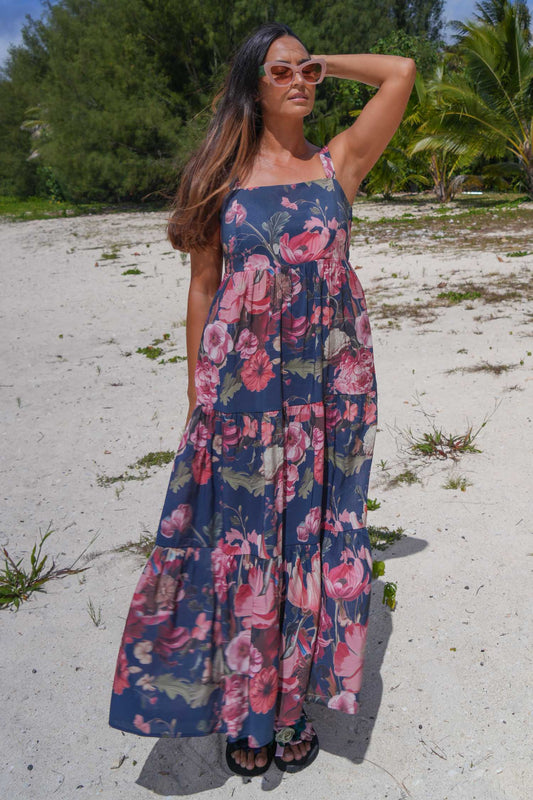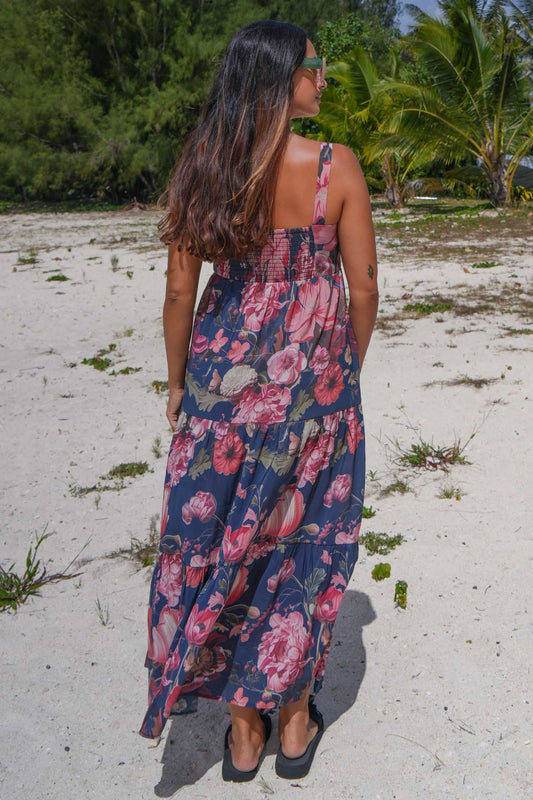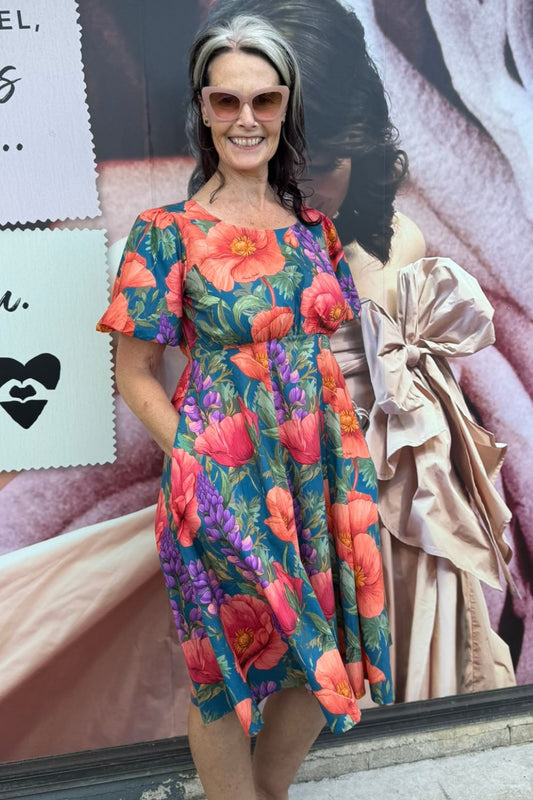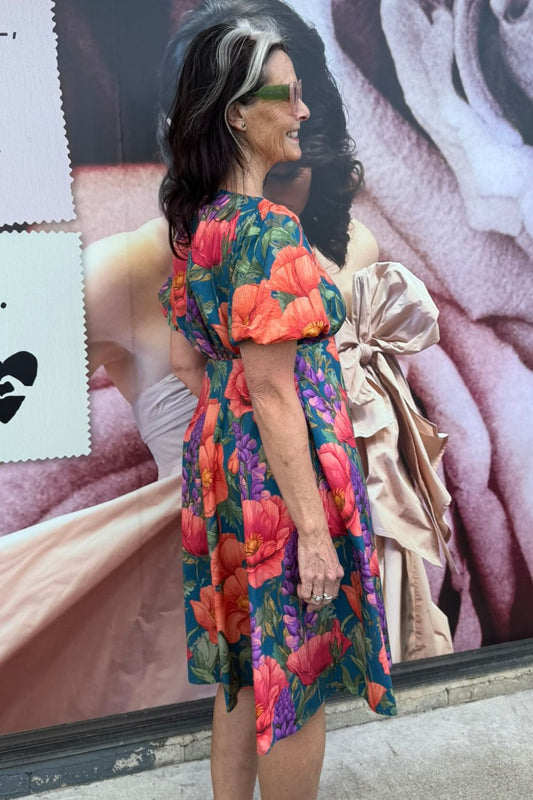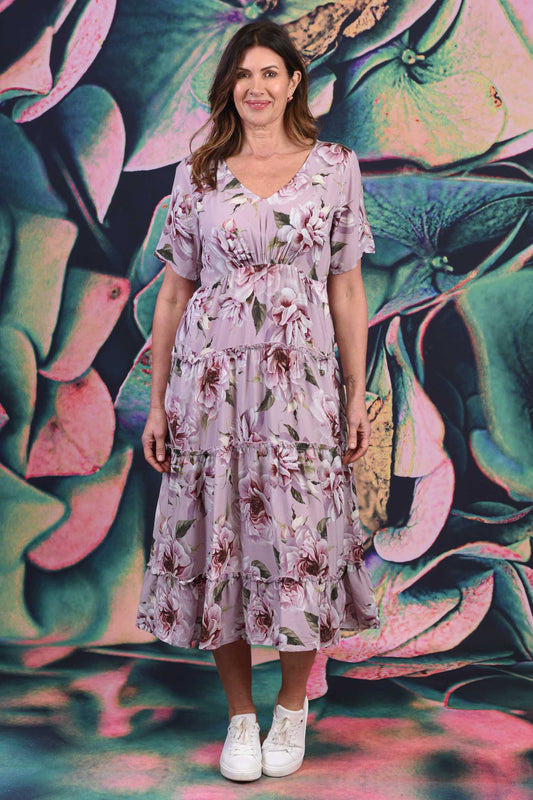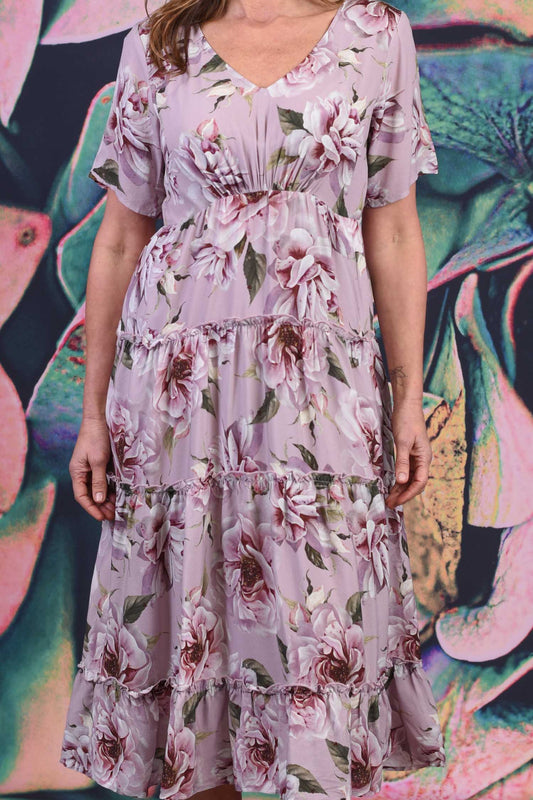The Annah Stretton brand has evolved over more than three decades into far more than a fashion label. It is a platform for social change, a voice for women, and a celebration of creativity, compassion, and courage. As I look ahead, I believe it is essential to frame this brand as a legacy brand, something that preserves the story, the values, and the social impact at its core.
While my daughter Sami will play a significant role in its future, this is not about passing on a business in the traditional sense. It is about protecting and growing a brand that has become a cultural taonga, a treasured entity that inspires, empowers, and creates meaningful change. In this way, the Annah Stretton brand becomes a cultural force, grounded in fashion but reaching far beyond, into the hearts of communities and the lives of women who have often been overlooked.
For Sami, this legacy provides a powerful platform to build upon. A brand with deep values, strong identity, and the proven ability to shift societal outcomes. It gives her the freedom to evolve the brand in her own voice, while staying true to the mission that defines it.
This legacy is about more than longevity. It is about impact. It is about ensuring the Annah Stretton brand continues to lead with heart, to stand for something bigger, and to serve as a living, breathing expression of style, purpose, and possibility for generations to come.
All imagery from Women's Weekly.
Read full article below:
It’s not often that three generations of women share an office, but for Kiwi fashion designer Annah Stretton, her mum Vicki Lowe, and daughter Sami Stretton, it’s a daily “privilege”.
Annah, 65, celebrates her company’s near 35-year journey this year, with Vicki, 86, and Sami, 36, beside her every step.
Vicki has managed the accounts for 28 years, while Sami—who grew up in the business—is now the general manager.
As the tight-knit trio look ahead to Mother’s Day, they tell the Weekly how grateful they are for one another and the business, which is enjoying a resurgence.
While Annah’s label was “insanely successful” in its early years, things had begun to stall.
“It had become stigmatised and was struggling to reinvent itself as it aged,” Annah shares. “There were all sorts of barriers. We had to reinvigorate a label that had landed on Struggle Street.”
In the five years before Covid, she closed 24 of 34 stores across New Zealand and Australia as their leases expired. “We were reshaping the business to future-proof it. It was time to streamline and focus.”
Then, during the pandemic, an unexpected opportunity changed everything. A charity approached Annah to produce fabric face masks, and the team repurposed leftover fabrics and trims.
“Covid put us back on the map. We became one of the country's most trusted fabric mask makers, with sales reaching over a million dollars. It boosted cash flow, brought new eyes to the website, and reconnected women with our fashion. We built a strong company during a tough economic time.”
Lockdowns also pushed the brand into new product categories like accessories and homeware. With only 10 stores remaining, the focus shifted to online, which is now 50% of turnover. This month(April), they launched golf attire “for women who are young at heart and aging in years, who want to look great on the golf course and love our signature florals and colour”.
The brand's reinvention makes Sami “crazily proud”, and she credits Vicki with setting a “healthy benchmark” for workplace longevity.
“I’m passionate about growing this brand,” Sami says. “So much blood, sweat, and tears have gone into it. It has to continue!”
Another future creative on the rise may be Annah’s first granddaughter, Lily, 4. Known as “Narnah” to her four grandchildren, Annah already alters and customises Lily’s outfits on request. “Lily has a quirky sense of dress,” Annah laughs. “We go online together to look for pieces she likes, and I’m always intrigued by her choices—they’re nothing I’d pick for her, but she knows exactly what she wants!”
Lily lives in Mount Maunganui with her dad Edward—Annah’s son—her mum Lana, sister Violet, 3, and brother Ted, 1. Annah, who lives in Hamilton with husband, Tony Hope, has a home at the Mount and visits regularly. Lily has a list of outfits for Narnah to bring back and "edit"—sewing on appliqués, making tweaks, or creating something original.
Annah is equally close to Sami’s only child, River, 2, whom she shares with partner Jono Hopping. River spent his first year in the office with the three women before transitioning to daycare. “Our mother-daughter relationship has evolved so much,” Sami says. “From mentor and leader to business partner and now the most amazing, devoted Narnah to my boy, River. It’s always changing—in the best ways.”
Annah echoes that sentiment about Vicki, who taught her to sew and shares her love of baking, gardening, collectibles, and ‘70s retro homeware and design.
“It’s been a privilege to have Mum involved in the business. She contributes so much, every single day.”
Vicki works four days a week, commuting 21km from her Te Aroha home to the Morrinsville HQ. She’s even ventured into modelling recently, posing for portraits Annah took for her local photography club. “We’re very much trying to have our own Iris Apfel moments with Mum!” Annah laughs.
Vicki smiles. “It’s good to be amongst it and part of something. It keeps me active—keeps the driver’s licence going! I can still live a normal, everyday life, even though I’m quite a bit older. And the atmosphere in the company is just wonderful.”
The Stretton women are proof that age doesn’t limit growth or possibility. Alongside reviving her business, Annah’s nearly completed three master’s degrees—in social policy, Māori and Indigenous studies, and photography—having returned to university at 59.
Her studies now support her extensive social work, particularly with RAW, the charity she founded helping incarcerated women rebuild and reclaim their lives.“This fourth quartile of my life will be diverse. “I’ll stay involved, learning, growing, and initiating new things.”
Sami says, “Mum’s shown me everything’s possible if you work for it. Don’t say, ‘I can’t do that.’ The question should always be, ‘How can I get there?’”


